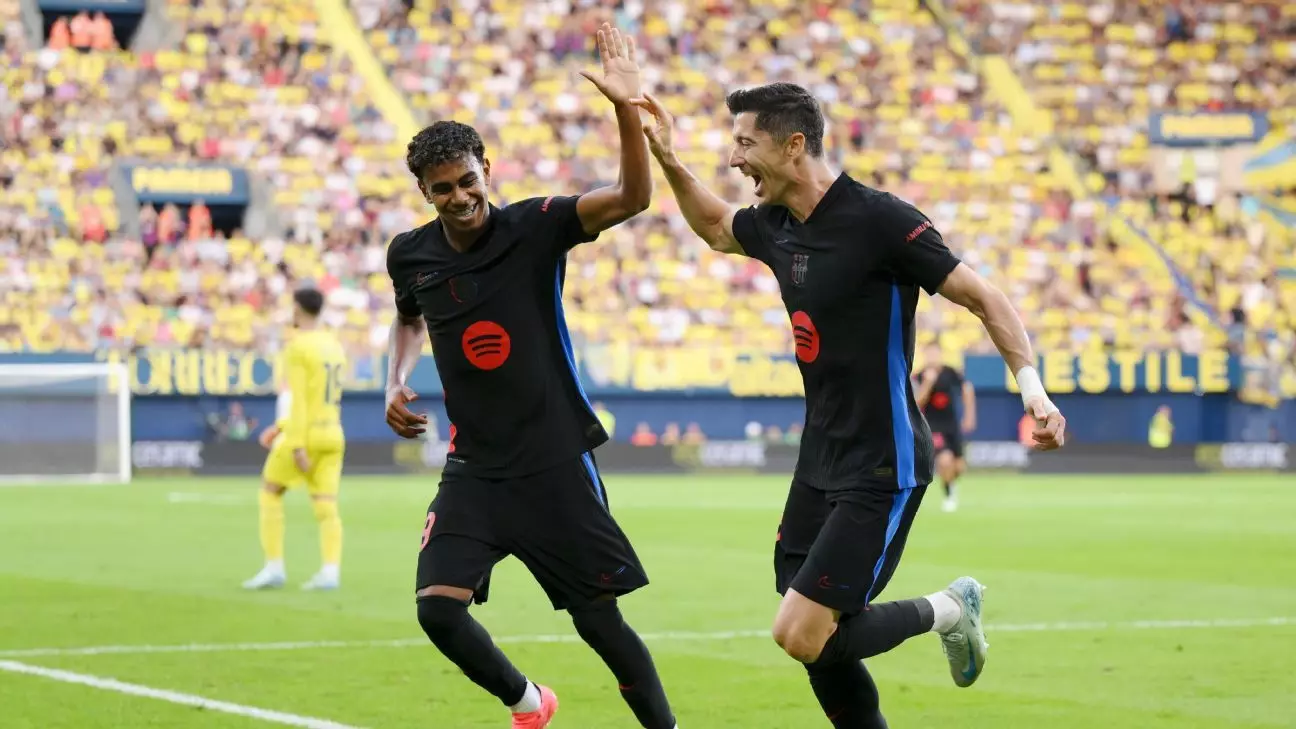In the evolving landscape of modern football, the emergence of young talent often captures significant attention. One standout player from FC Barcelona is Lamine Yamal, a 17-year-old sensation who has quickly made a name for himself. Under the guidance of coach Hansi Flick, Yamal has started all competitive matches this season, contributing substantially to the team’s performance. His exploits include four goals and five assists, showcasing a blend of youthfulness and skill that has left fans and critics alike in awe. However, this heavy involvement raises concerns about his physical demands, prompting discussions about player management, particularly at such a tender age.
Despite the growing calls for rest, Flick remains steadfast in his assurance that Yamal is fit and capable of handling his current workload. In a press conference, he pointed out the lack of data suggesting that the young player’s performance and physical condition warrant a break. This decision is significant; it underlines Barcelona’s commitment to nurturing talent while also seeking immediate results. Flick emphasizes the importance of building momentum, especially in home matches where the team’s energy and fan support are at their peak. His philosophy seems to prioritize the psychological advantages of continuous play over the cautious approach of rotation that some would advocate for younger athletes.
Flick’s comments extend beyond mere fitness; he expresses a belief in Yamal’s extraordinary potential, hinting that the young winger could become one of the world’s best players. This perspective aligns with the growing sentiment among football analysts that Yamal’s skill set is already remarkable for his age. However, this belief must be balanced with realistic expectations and careful management. The pressure that comes with such high expectations can be challenging for young players, and it highlights the need for a support system to help them navigate the highs and lows of professional football.
An evolving facet of Yamal’s trajectory is his increasingly rough treatment on the pitch. As his performances improve and attract attention, opponents often resort to physical play in attempts to neutralize him. Flick’s faith in referees to protect Yamal reflects an understanding of the dynamics at play; however, it begs the question: How much responsibility does the coaching staff hold in ensuring the young players’ well-being? While referees are tasked with maintaining fairness, coaches must also establish environments that prioritize player safety. The accountability for player welfare is a multifaceted issue that transcends the responsibilities of any single individual on a football team.
The recent injury crisis at Barcelona adds another layer of complexity to managing Yamal’s minutes and performance. With first-choice goalkeeper Marc-André ter Stegen facing a long-term absence due to a ruptured tendon and several key players sidelined, the club’s depth is tested. Flick’s response to the injury—with confidence in reserve goalkeeper Iñaki Peña and a potential exploration of the transfer market—reveals strategic adaptability. Balancing the integration of youth like Yamal with the need for experienced players is vital, especially during challenging phases of the season.
Barcelona’s approach to player management is emblematic of a broader trend in football, where clubs are increasingly focused on developing talent rather than relying solely on established stars. The case of Yamal poses a fascinating dilemma: while his current contributions are invaluable, maintaining his health and morale is equally crucial for his and the club’s long-term ambitions. This balance between immediate performance and sustainable growth will likely shape Barcelona’s strategy moving forward.
As FC Barcelona navigates through the complexities of managing young talents like Lamine Yamal in a high-stakes environment, every decision made can have sidelined consequences. Flick’s confidence in both Yamal and the refereeing process, coupled with strategic adaptations due to injuries, illustrates a unit striving for success while also nurturing its future. Ultimately, balancing the fine line between immediate performance and long-term development in young players is not just a challenge; it is essential for the sustained success of clubs at the highest level. Understanding this complexity will be vital as football continues to evolve, and the importance of youth talent remains increasingly prominent.

